

The ASEAN Guidelines for Provision of Protective and Support Services for All Child Victims and Children in Contact with the Law as a Result of Online Child Sexual Exploitation and Abuse are an important milestone towards increasing the prosperity, connectivity, resilience, and security of children of ASEAN Member States. Taken as a whole, the Guidelines form a framework in which development can take place.
The ASEAN Guidelines for Harmonised and Comprehensive National Legislation Against All Forms of Online Child Sexual Exploitation and Abuse are an important milestone towards increasing the prosperity, connectivity, resilience, and security of children of ASEAN Member States.
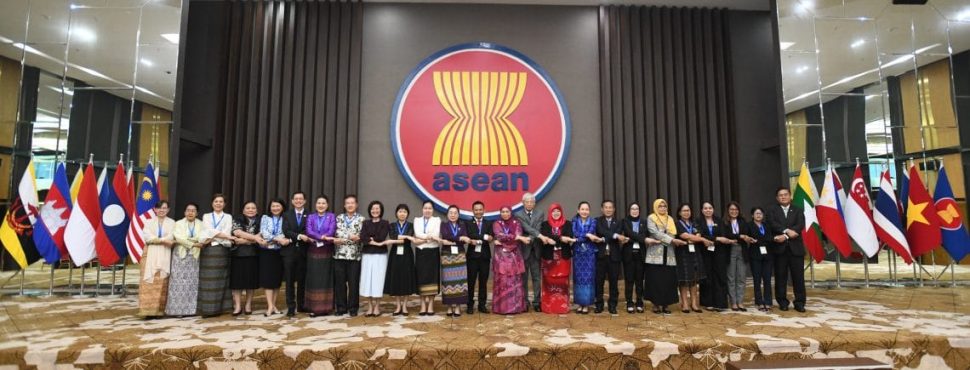
JAKARTA, 25 April 2024 – Investing on empowering women and children is crucial to scale up efforts to promote and protect women’s rights and children’s rights in the region. On the occasion of the 28th ASEAN Commission on the Promotion and Protection of the Rights of Women and Children (ACWC) Meeting, the representatives emphasized the need for bold steps to create a safe and inclusive ASEAN Community for all women and children.
“Upholding the rights of women and children throughout the lifecycle is paramount in enabling a safe, gender equal and inclusive ASEAN Community,” according to Soukphaphone Phanit, Permanent Secretary of Planning and International Cooperation Department, Lao Women’s Union, as ACWC Chair and Lao PDR’s ACWC Representative for Women’s Rights.
ACWC has prioritized addressing emerging challenges facing women and children, ensuring that ASEAN address trafficking in persons, cyberviolence, disability rights, women prisoners’ right, economic empowerment, gender equality and social inclusion in climate action planning, legal identity of women and children, child labour, and child early and forced marriage, among others. As such, gender transformative actions and child-empowering approaches need to be embedded in the ASEAN Community Vision 2045.
“More than ever, it is imperative for ASEAN to enhance its cooperation and increase its investment on promoting and protecting women’s and children’s rights and building community resilience through intensifying partnerships and collaboration across the three ASEAN Community pillars together with external partners, private sector and civil society”, added Phanit.
The ACWC reaffirmed its strong commitment to ending violence against women and children in all its forms through the roll-out of key ASEAN regional guidelines that were successfully completed and launched by ACWC in 2023. These include the i) ASEAN Guidelines for Provision of Protective and Support Services for All Child Victims and Children in Contact with the Law as a Result of Online Child Sexual Abuse and Exploitation, ii) ASEAN Guidelines for Harmonised and Comprehensive National Legislation against All Forms of Online Child Sexual Exploitation and Abuse, and the iii) ASEAN Guidelines for Developing National Standard Operating Procedures for a Coordinated Response to Violence against Women and Girls that will be launched on 22 August 2024.
In shaping a better future for all women and children in ASEAN, the ACWC has embarked on reviewing the implementation of the ASEAN Regional Plan of Action on the Elimination of Violence Against Women (ASEAN RPA on EVAW) and the ASEAN Regional Plan of Action on the Elimination of Violence Against Children (ASEAN RPA on EVAC) as well as the development of its successor plans of action.
The ACWC recognised the important role and active support of ASEAN Dialogue and Development partners as well as International Organisations in realising ASEAN’s commitments to promoting and protecting the rights of women and children. The ACWC Open Session was attended by the United Nations Special Representative of the Secretary-General on Violence against Children (UN SRSG on VAC), UNICEF, UN Women, UNHCR, Australian Mission to ASEAN, UK Mission to ASEAN, USAID, WWF and CRC Asia. The 28th ACWC Meeting was attended by the representatives for women’s rights and children’s rights from all ASEAN Member States with Timor-Leste as observer, and representatives from the ASEAN Headquarters.






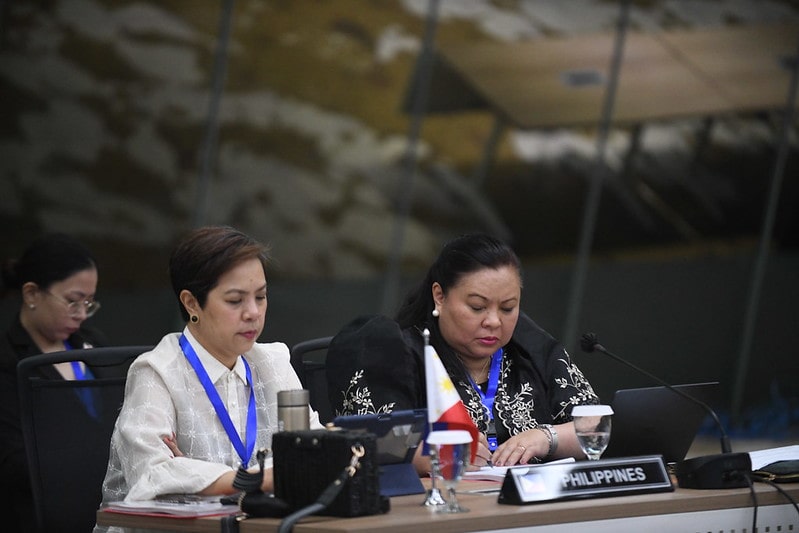
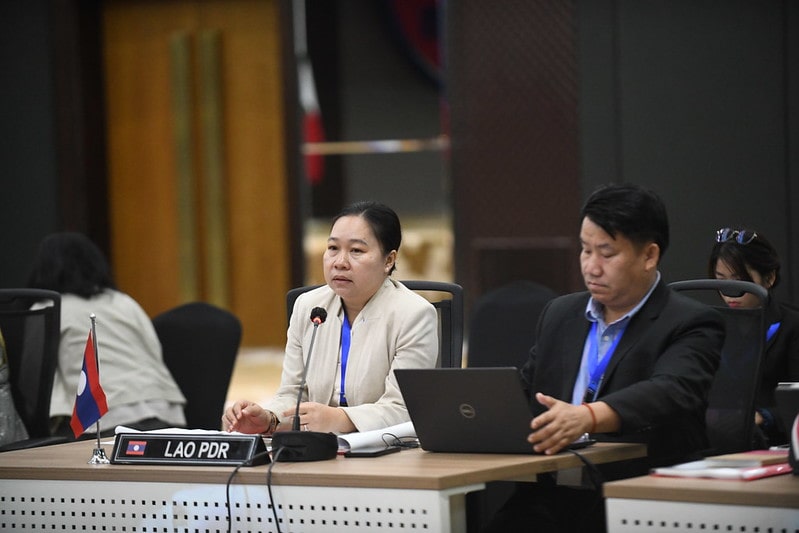
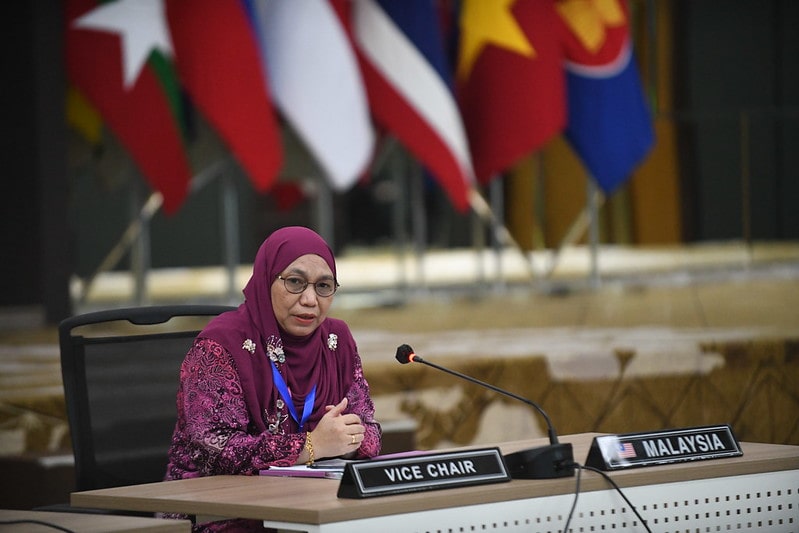
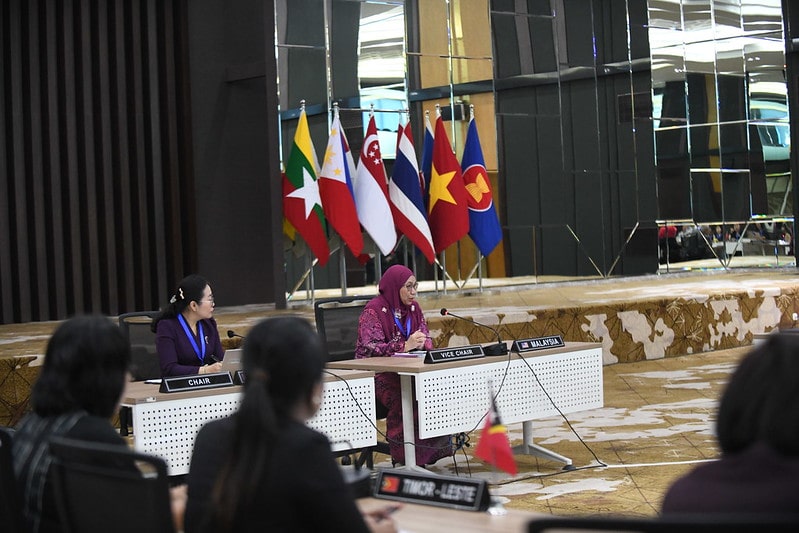
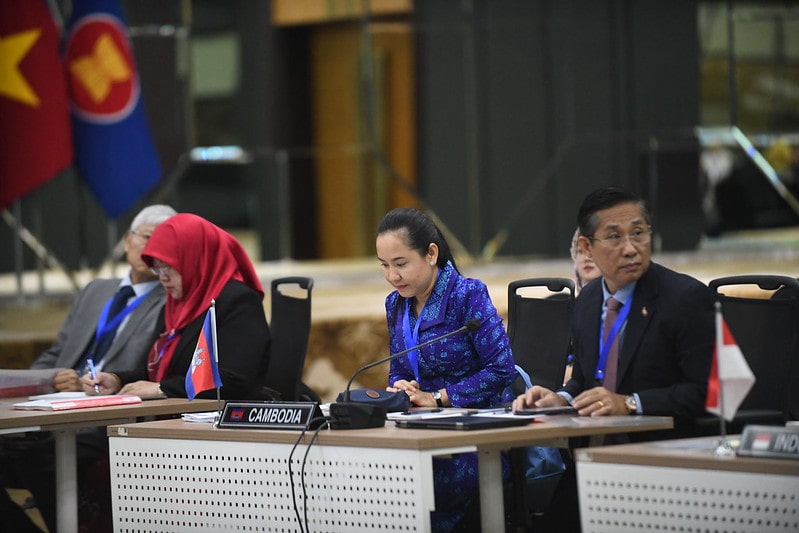
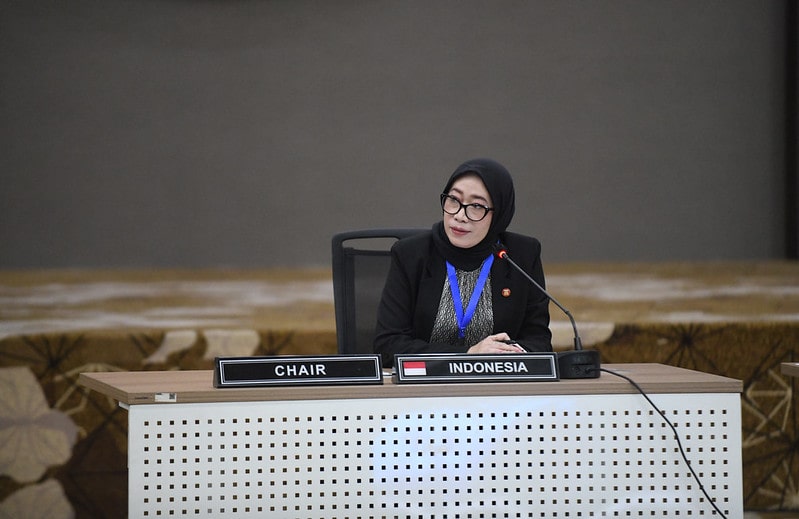
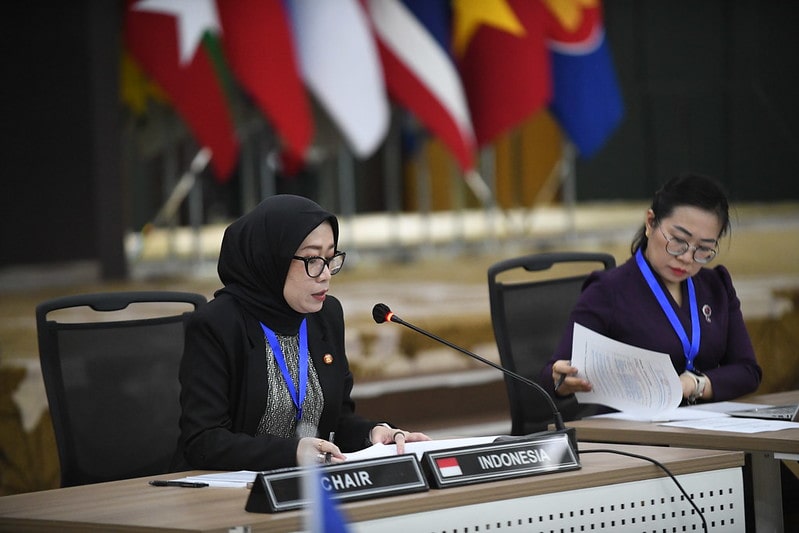
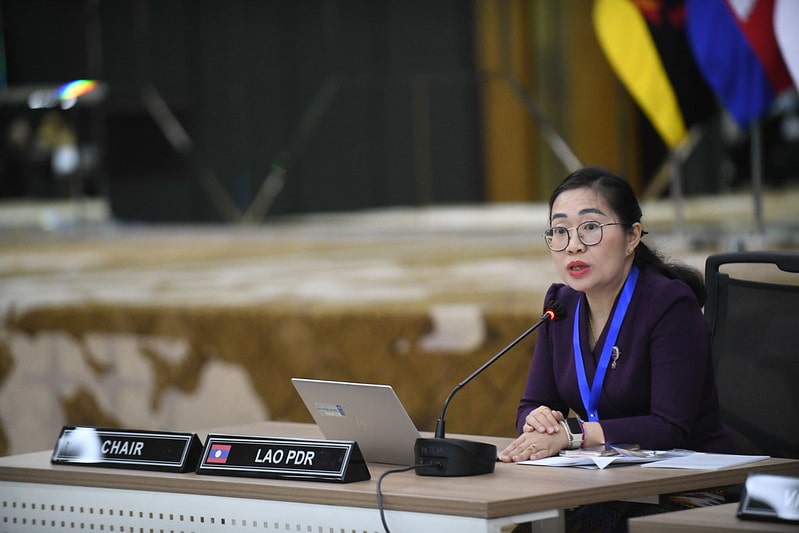
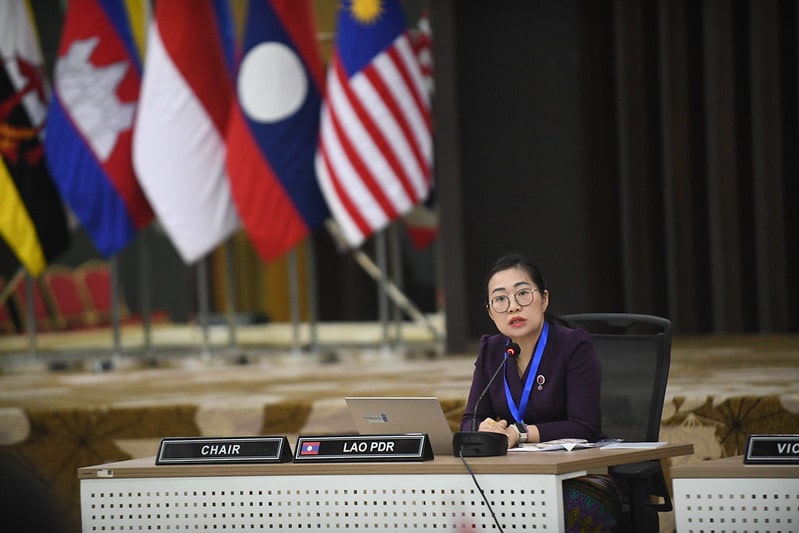
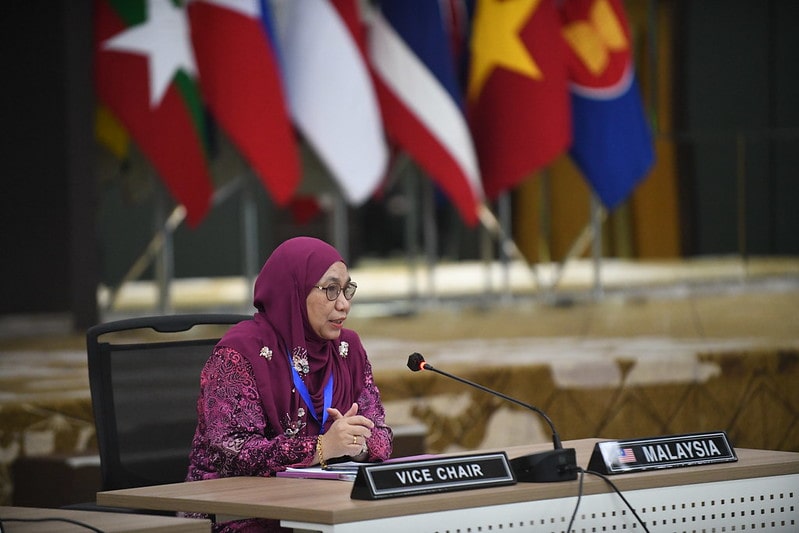
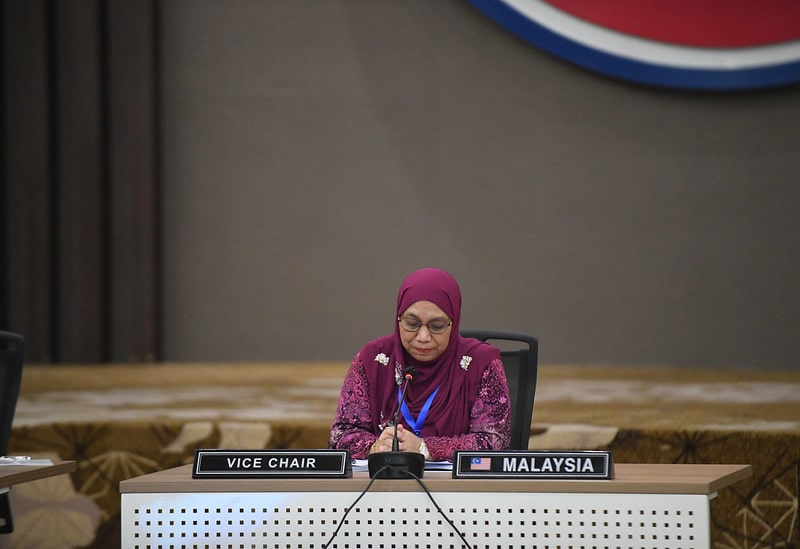
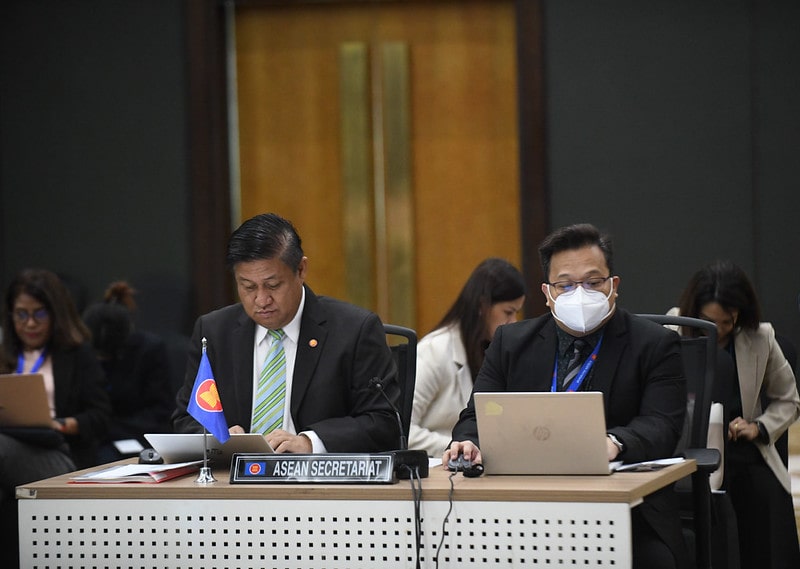
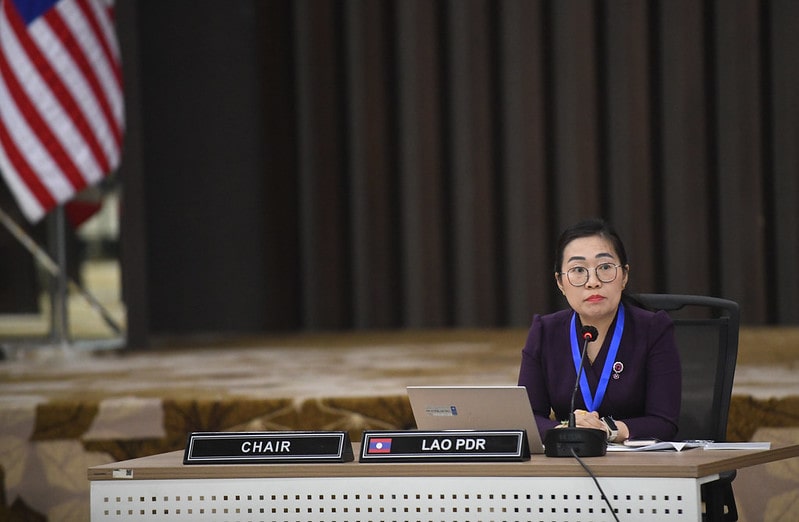
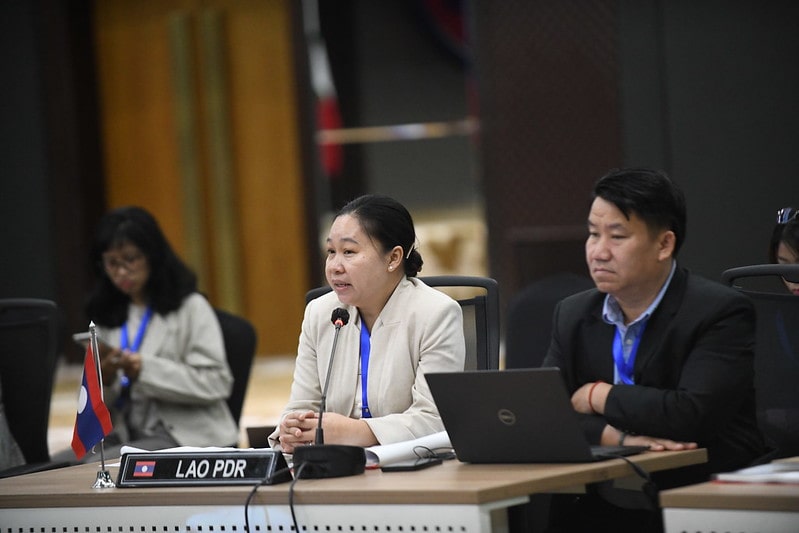
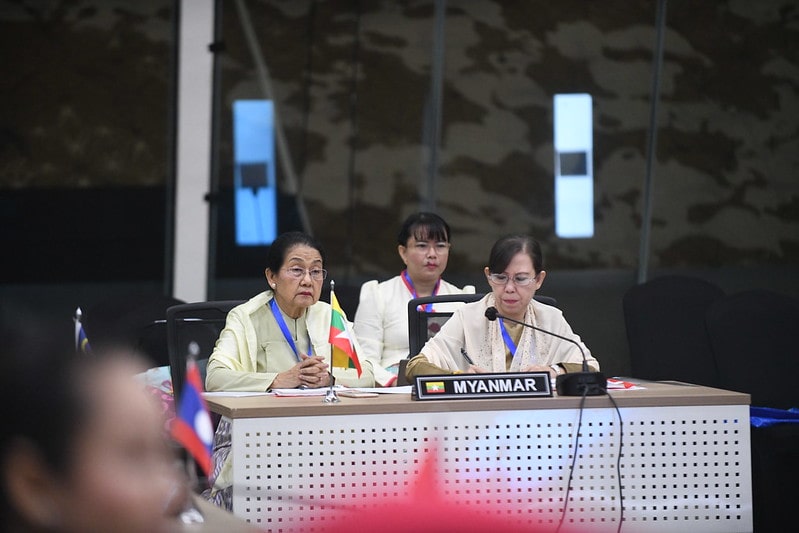
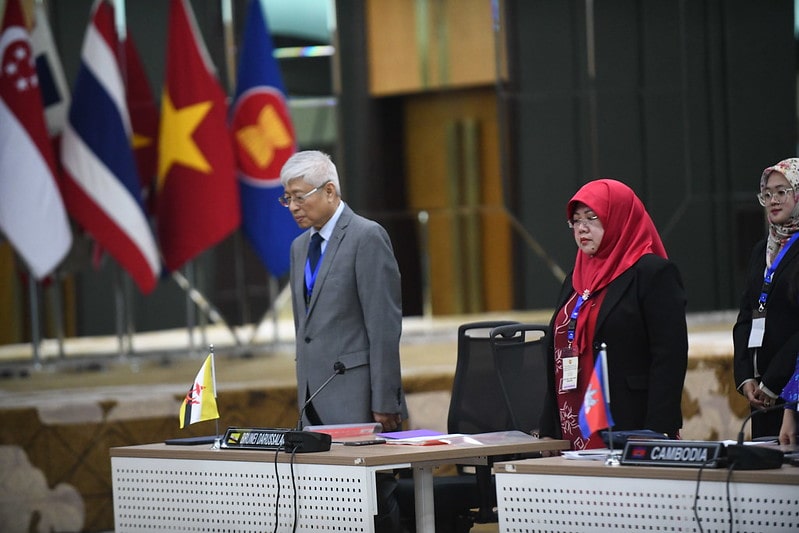
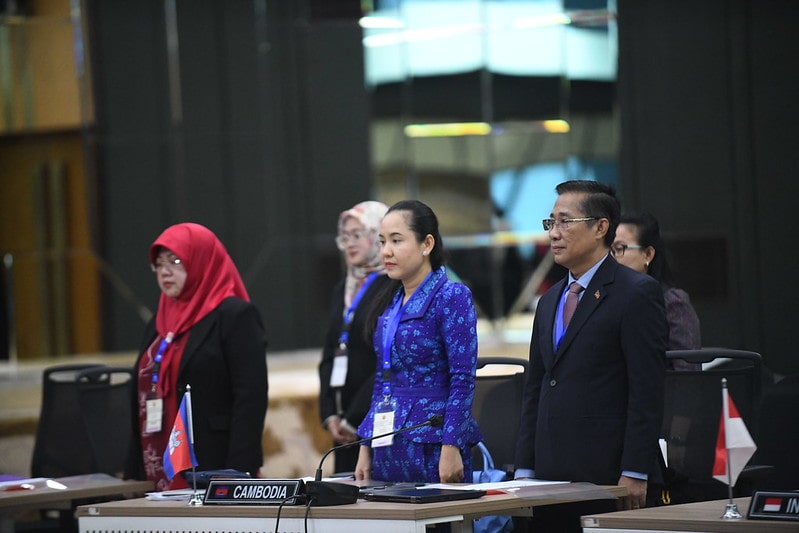
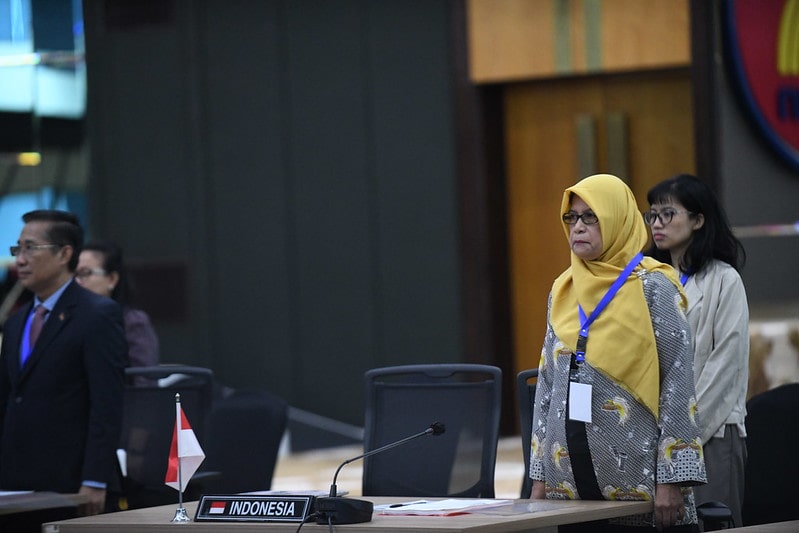
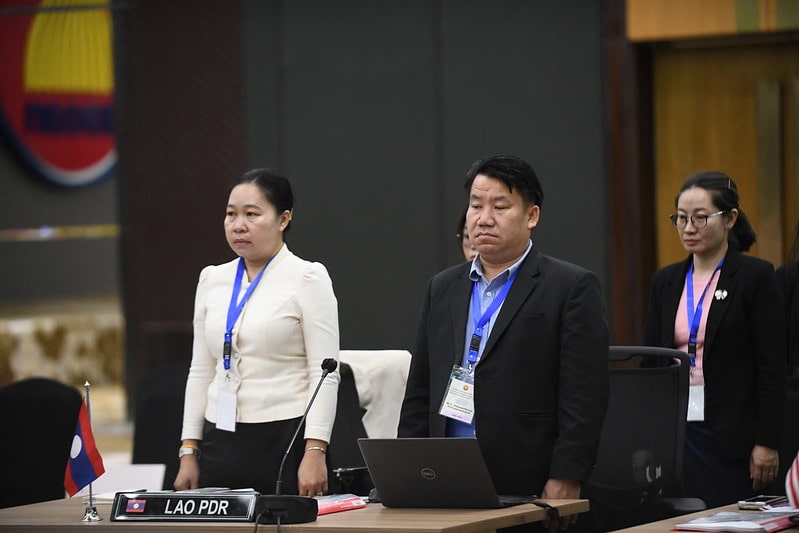
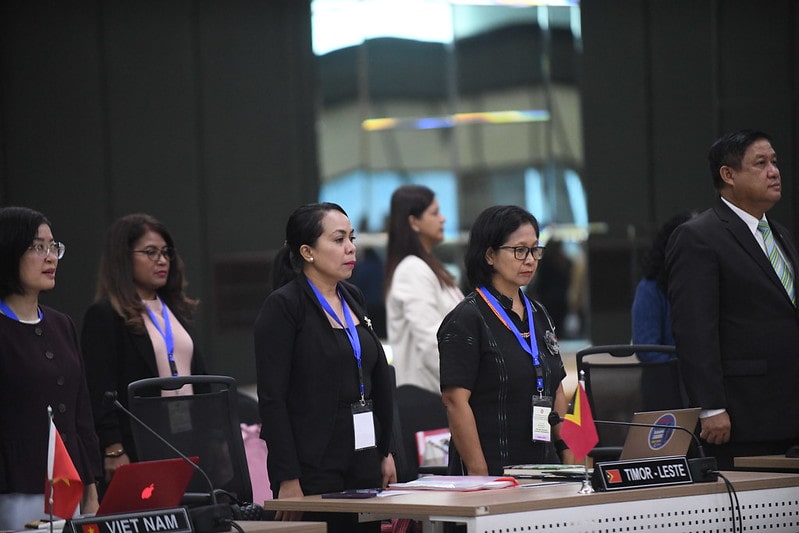
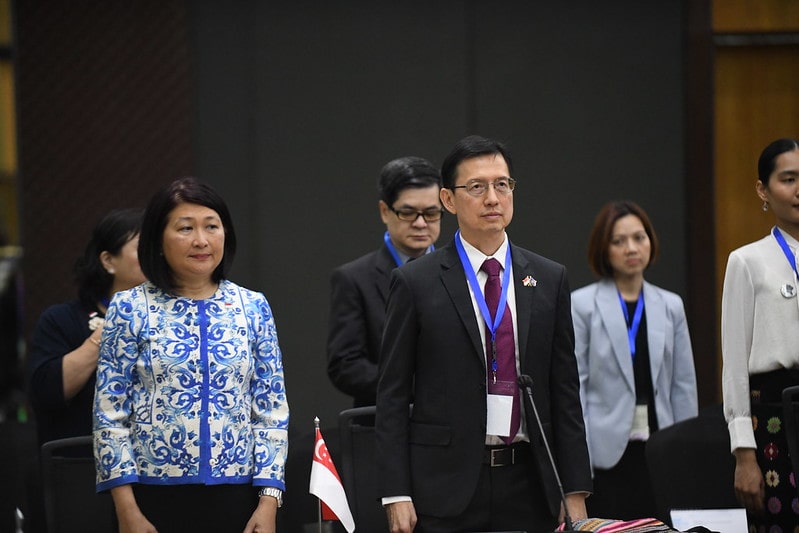
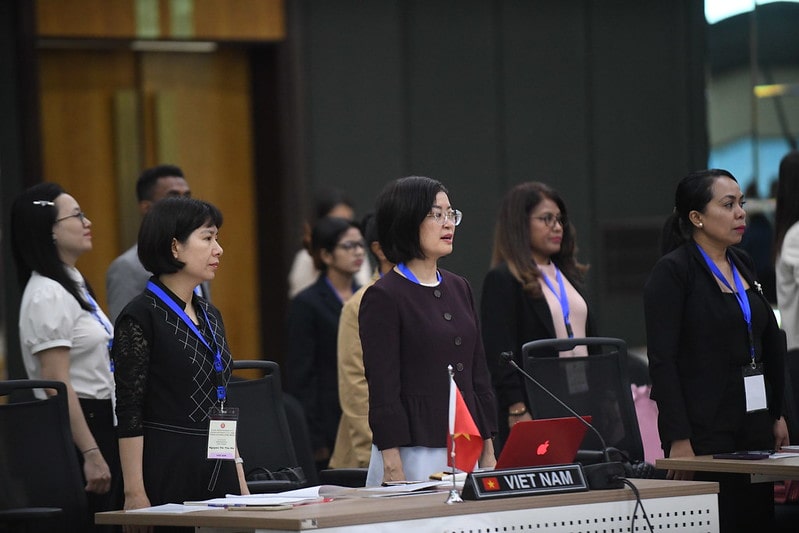
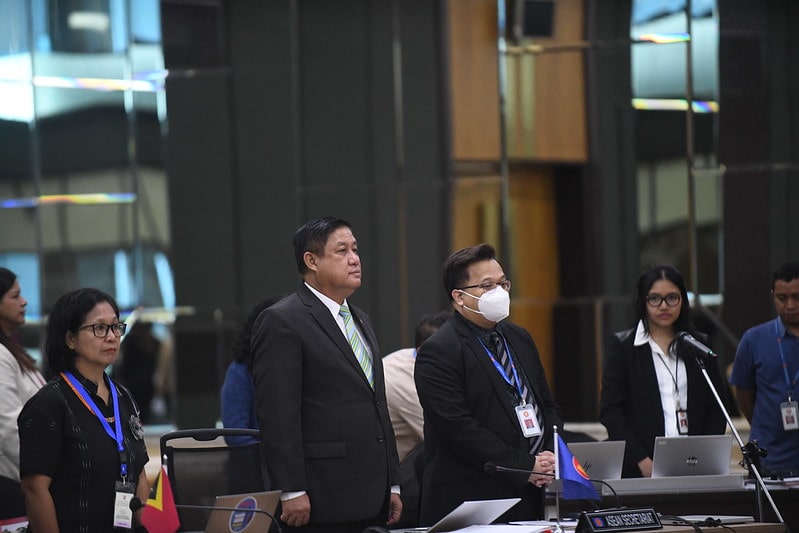
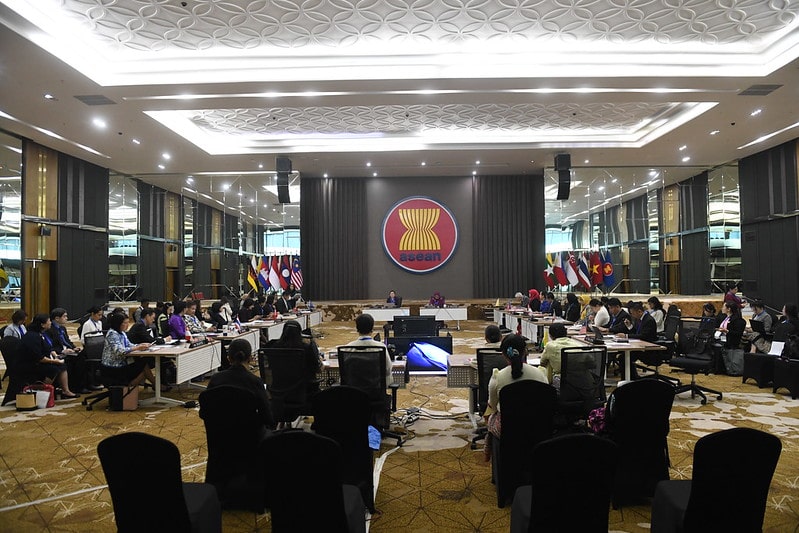
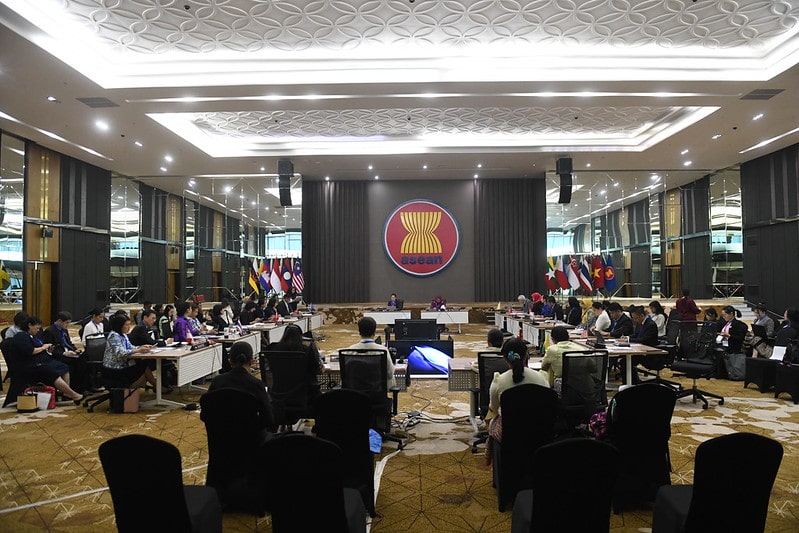
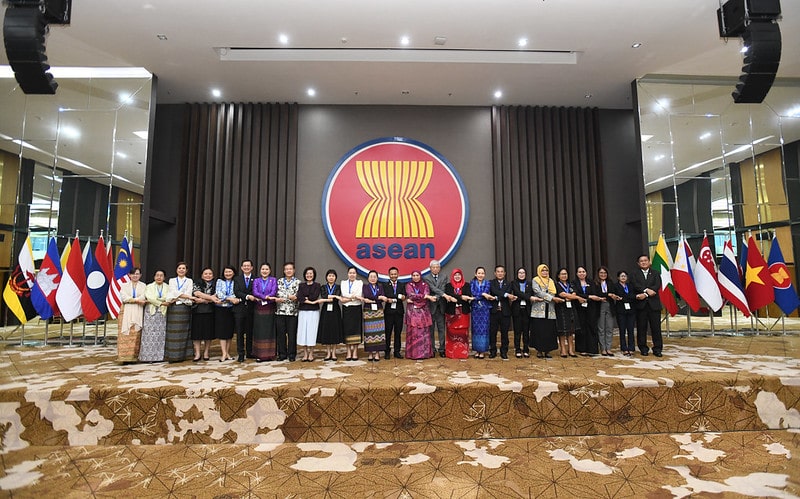
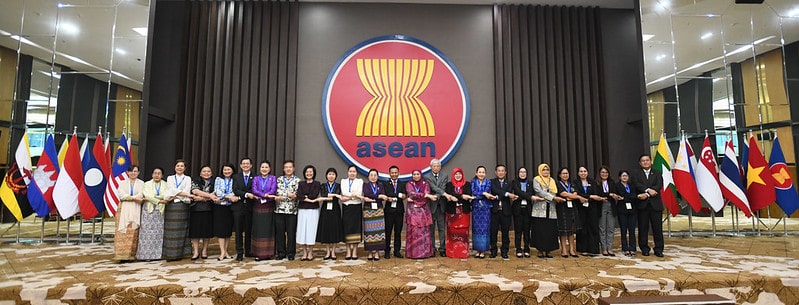
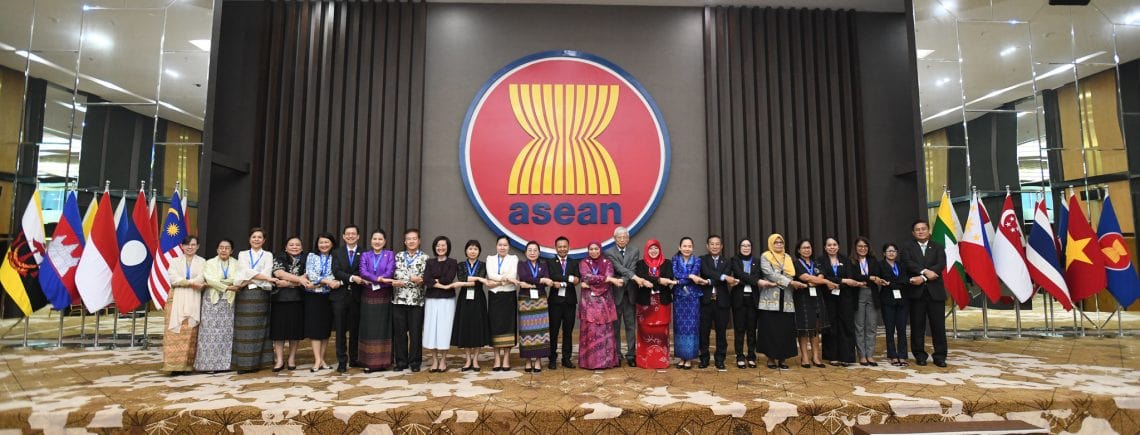
At the 10th ASEAN Summit held in November 2004, the ASEAN Leaders adopted the Vientiane Action Programme 2004-2010 (VAP) which, among others, called for the establishment of an ASEAN commission on the promotion and protection of the rights of women and children.
The ACWC has been successful in mobilising political consensus to reach an agreement on the organizational foundations of the commission. Concretely, this milestone is reflected in the Terms of Reference (TOR) of the ACWC which came into force upon the approval of the AMMSWD. Adjusting to the changing regional and global milieu as well as the realities faced by the commission, the ACWC reviewed and revised its TOR starting in 2016.
This policy recommendation document is specifically looking at the progress of the implementation of ASEAN Gender Mainstreaming Framework (AGMSF) 2021-2025, that identify key elements and action plan on its implementation by ASEAN Sectoral Bodies (ASBs) in the Socio – Cultural Community.
This policy recommendation refers to the result of the Chairman Statements at the 42nd ASEAN Summit that is in line with the targets of Sustainable Development Goals (SDGs) and ASEAN Community Vision 2025. Specifically, for this Socio-Cultural Community Policy Recommendation, it refers to the ASEAN Socio-Cultural Community Blueprint 2025, the ASEAN Declaration on the Gender-Responsive Implementation of ASEAN
Community Vision 2025, SDGs, and the ASEAN Comprehensive Recovery Framework.
Implementing the Women, Peace and Security (WPS) agenda has long been recognised as essential to achieving sustainable peace and prosperity in the ASEAN region. ASEAN member states remain committed to gender equality and the full protection of women’s rights. They also remain steadfast in their aim to maintain regional peace, address shared security concerns and advance development and prosperity for all citizens. Member states consider the development of this Regional Plan of Action on Women, Peace and Security (RPA WPS) as a critical step to making progress on these commitments. The RPA WPS aims to mobilise the whole of ASEAN to advance implementation of the WPS agenda to promote sustainable peace and security for all citizens.
In recent years, there has been increased recognition of the critical importance of gender equal- ity and women’s empowerment to sustainable development, and as a result, increased commitment to institutionalising gender mainstreaming approaches by governments and international and regional or- ganisations. The Sustainable Development Goals (SDGs)now include a dedicated Goal—Goal 5—on gender equality, and in recognition that gender equality is multi-dimensional and integral to other de- velopment outcomes, it is also envisaged that gender equality will be mainstreamed across all the Goals. In addition, the 2030 Agenda pledges to “leave no one behind” and to “endeavour to reach the furthest behind first.”
Addressing gender equality is a stated priority for all ASEAN Member States and for ASEAN. Over the past decade, economic development, government measures, and the efforts of civil society have led to significant improvements in reproductive health, narrowing gender gaps in education and increasing women’s labour force participation. However, the World Economic Forum’s 2021 Global Gender Gap report revealed a mixed record for the Member States. The Philippines was ranked 17th globally, surpassing countries like Japan, Australia, and Canada, and remaining—despite a drop of eight places—the most gender-equal country in Asia.
JAKARTA, 2 March 2023 – For the first time since the pandemic, the 26th ASEAN Commission on the Promotion and Protection of the Rights of Women and Children (ACWC) Meeting took place in-person at the ASEAN Secretariat.
The two-day meeting – attended by representatives of Women’s Rights and Children’s Rights from ASEAN Member States (AMS) – provided a venue to discuss regional strategic efforts to address pressing issues and emerging challenges on the rights of women and children including ending gender-based workplace exploitation, regional guideline for developing national Standard Operating Procedures (SOPs) for a coordinated response to Violence against Women and Girls (VAWG), mainstreaming gender equality and social inclusion into climate action planning, enhancing gender-responsive treatment on women prisoners, and accelerating women migrant workers’ economic empowerment, among others.
These efforts that were reflected in the ACWC Work Plan 2021-2025 ensure that gender equality and social inclusion are mainstreamed in line with upholding the rights contained in the Convention on the Elimination of Violence Against Women (CEDAW) and the Convention on the Rights of the Child (CRC).
“More than ever, raising the voices of women and children in discussing gender-based issues and in identifying solution-focused actions are key in ensuring that ASEAN’s initiatives by 2025 would achieve long-term gendered impacts and results, with no woman and child left behind,” said Yanti Kusumawardhani, Indonesia’s Representative on Children’s Rights and Chair of ACWC.
The ACWC will institutionalise gender mainstreaming efforts across the ASEAN Community pillars through its leadership role in establishing the ASEAN Gender Mainstreaming Steering Committee (AGMSC), together with the ASEAN Committee on Women (ACW). They reaffirmed their commitment to utilise a whole-of-ASEAN approach in implementing the ASEAN Gender Mainstreaming Strategic Framework (AGMSF).
They further supported Indonesia on the roll-out of the ASEAN Do-No-Harm Guide for Frontline Responders: Safeguarding the Rights of Victims of Trafficking in Persons – launched on 11 January with the support from the ASEAN-ACT.
The ACWC will continue to implement the ASEAN Regional Plan of Action on Women, Peace and Security (ASEAN RPA on WPS) with stronger advocacy and capacity-building efforts, especially in the security sector as well as ASEAN Regional Plan of Action on Ending Violence against Women (ASEAN RPA on EVAW) and will organise the Launch of ASEAN/WE STRIVE Campaign for Ending Gender-Based Workplace Exploitation; Observance of the International Women’s Day 2023 on 10 March 2023 featuring online platform for private sector companies to pledge, conduct, and share emerging practices on preventing abuse and gender-based exploitation to women in the world of work.
ACWC’s use of digital technology and greater participation of the private sector to step-up its advocacy strategies have contributed to Indonesia’s Chairpersonship of ASEAN in 2023, which is guided by the theme: “ASEAN Matters: Epicentrum of Growth”.
Moving ahead, the ACWC shall endeavour to leverage measures that will increase child participation in ASEAN initiatives through the development of a regional framework on child participation. “In shaping the future of ASEAN beyond 2025, the ACWC has a crucial role to be at the forefront in driving closer regional cooperation among relevant ASEAN Sectoral Bodies in promoting and protecting the rights of women and children, especially the disadvantaged, those living in vulnerable situations as well as, using rights and gender perspectives,” Kusumawardhani added.
The ACWC will also continue to address the violence against children issues and enhance the cooperation among relevant sectors for child protection through the planned initiatives this year including the development of the ASEAN Declaration on the Elimination of Child Labour, and 2nd ASEAN-ICT Forum.
The Interface Meeting between ACWC and the ASEAN Intergovernmental Commission on Human Rights (AICHR) – preceding the 26th ACWC – showed their commitment to work together on ensuring alignment and complementation in promoting and protecting the rights of women and children including enhancing gender-responsive treatment of women prisoners and ending gender-based workplace exploitation. ACWC and AICHR agreed to explore joint initiatives on ending violence against women and children, implementation of ASEAN’s commitments on the human rights of women and children, and the social impacts of climate change, among others.
In forging ahead, ACWC Representatives explored opportunities for robust partnerships and cooperation with ASEAN partners, especially in enhancing institutional capacity and effectiveness of ACWC as an ASEAN consultative body.
VIENTIANE, 22 September 2022 – The 25th ASEAN Commission on the Promotion and Protection of the Rights of Women and Children (ACWC) Meeting took place today in conjunction with the 21st ASEAN Committee on Women (ACW), the 9th ACWC-ACW Consultation Meeting and related meetings via video conference hosted by Lao PDR.
The meeting provided an opportunity for ASEAN Member States to reexamine regional efforts in realising ASEAN’s priorities to end all forms of violence against women and children under the theme “Advancing the Implementation of International and Regional Frameworks on the Elimination of Violence Against Women”.
“In the face of immense global crises, addressing the challenges faced by the ASEAN Member States in eliminating violence against women and children, exacerbated by the engendered impacts of COVID-19, is an urgent priority for cross-sectoral and inter-pillar cooperation and multi-stakeholder engagement in ASEAN,” said Hou Nirmita, Under Secretary of State of the Cambodian Ministry of Women’s Affairs and Chair of ACWC.
“Women and children are not merely passive recipients of services, they have indispensable roles in driving lasting change – they need an enabling environment that respect and protect their rights and provide them the needed support to contribute to building a community of equal opportunity,” she added.
ACWC reaffirmed its leadership role in spearheading strategic actions to advance the implementation of ASEAN’s commitments on ending violence against women and children. In particular, these are actions under the regional frameworks that advance the broader agenda on strengthening prevention and response to violence against women and children namely (i) the ASEAN Regional Plan of Action on the Elimination of Violence against Women and the ASEAN RPA on the Elimination of Violence against Children; (ii) the Regional Plan of Action for the Protection of Children from All Forms of Online Exploitation and Abuse in ASEAN; (iii) and the Regional Plan of Action on Implementing the ASEAN Declaration on the Rights of Children in the Context of Migration.
The ACWC reflected on the progress of implementation of the ACWC Work Plan 2021-2025 and its key contributions to cross-sectoral and inter-pillar cooperation and collaboration towards realising the priorities that impact women’s and children’s lives.
The meeting also deliberated on ACWC’s role in areas such as gender mainstreaming; gender equality and social inclusion; the rights of women prisoners; women’s economic empowerment; sustainable development; women, peace, and security (WPS); trafficking in persons, disability-rights, and recovery from COVID-19 pandemic.
The finalisation of the ASEAN Regional Plan of Action on Women, Peace and Security (ASEAN RPA on WPS) aims to mobilise a whole-of-ASEAN approach to advance implementation of the WPS agenda to promote sustainable peace and security for all citizens in the region. As a longer-term strategy for promoting gender mainstreaming in ASEAN, the recently launched ASEAN Gender Mainstreaming Strategic Framework focuses on building greater commitment and capacity across the three ASEAN Community pillars.
Strengthening partnerships with diverse stakeholders has been a top priority for ACWC to accelerate the implementation of the ACWC Work Plan 2021-2025 guided by the Cambodia Chairpersonship of ASEAN theme “ASEAN-ACT- Addressing Challenges Together”.
On this, the ACWC recognised the longstanding support from partners who joined the Open Session of the 25th ACWC Meeting, namely UNICEF, UN Women, ASEAN-USAID PROSPECT, Australian Mission to ASEAN, Child Rights Coalition Asia, UNDP and UNFPA.
JAKARTA, 12 October 2021 – The ASEAN Commission on the Promotion and Protection of the Rights of Women and Children (ACWC) continues to safeguard the well-being of women and children in the new normal.
During the 23rd ACWC Meeting conducted virtually on 12 October 2021, ACWC Representatives from all ten Member States deliberated on harnessing the efforts of ASEAN amidst the COVID-19 recovery process in promoting and protecting the rights of women and children through the ACWC Work Plan 2021-2025.
Guided by the purpose and mandate of ACWC as a human rights mechanism, the endorsed ACWC Work Plan 2021-2025 serves as a living blueprint to drive ASEAN in developing regional policy actions for improving the lives of women and children in ASEAN.
This year’s ASEAN theme “We Care, We Prepare, We Prosper” has inspired the finalisation of the ACWC Work Plan 2021-2025. With this, “we ensured that the ACWC Work Plan 2021-2025 would fully reflect the ambition of the ACWC by 2025 and beyond with the well-being and best interest of all women and children in the ASEAN region in mind,” said Mrs. Hou Nirmita, the ACWC Vice-Chair and Cambodia’s Representative for Women’s Rights to the ACWC.
To ensure an inclusive and responsive recovery from COVID-19 with the needs of vulnerable women and children addressed, the ACWC further sharpened its key priorities for 2021-2025 with more targeted support and cooperation from relevant partners and inclusive stakeholders’ participation.
Through the ASEAN Gender Mainstreaming Framework (AGMSF) jointly developed by the ACWC and the ASEAN Committee on Women (ACW), it is hoped that gender mainstreaming in the region will gain the support and cooperation of key partners and stakeholders especially in the three ASEAN Community Pillars.
The Meeting served as an opportunity for the ACWC to discuss the pivotal ways of moving forward the continued implementation of the ASEAN Regional Plan of Action on the Elimination of Violence against Women (RPA on EVAW) and the ASEAN Regional Plan of Action on the Elimination of Violence against Children (RPA on EVAC). To strengthen implementation of the two documents, the Meeting finalised the Regional Plan of Action for Protection of Children from All Forms of Online Exploitation and Abuse in ASEAN (RPA on COEA) and the Regional Plan of Action on Implementing the ASEAN Declaration on the Rights of Children in the Context of Migration (RPA on CCM). It envisaged securing the notation of ASEAN Leaders at the 38th ASEAN Summit in October this year.
The Meeting further reaffirmed ACWC’s commitment to addressing the emerging challenges faced by all women and children in the region, including the negative impacts of child bullying through the timely development and finalisation of the Declaration on the Elimination of Bullying of Children in ASEAN, which will be submitted for adoption of the ASEAN Leaders at the 38th ASEAN Summit.
Moreover, in fulfilling ACWC’s mandate to promote and protect the rights of all women and children in ASEAN, the ACWC expressed its full support and dedication to contribute to the implementation of cross-sectoral and cross-pillar initiatives to advance other priority regional agenda on trafficking in persons, women, peace and security, social protection, disability inclusion, legal identity of women and children, and sustainable development, among many others.
Recognising the sustained support and cooperation of long-standing Dialogue and Development Partners in attaining the goals of the ACWC Work Plan 2021-2025, the ACWC particularly acknowledged the partners who joined the Open Session of the 23rd ACWC Meeting, namely the Mission of Canada to ASEAN, UNICEF, UN Women, Plan International and Thailand Institute of Justice (TIJ).
In forging ahead as a more resilient ASEAN Community, the ACWC, together with key partners, stakeholders and the ASEAN Secretariat, is committed to join hands in making sure that the efforts in advancing women’s rights and children’s rights will continue on in ASEAN despite these difficult times.